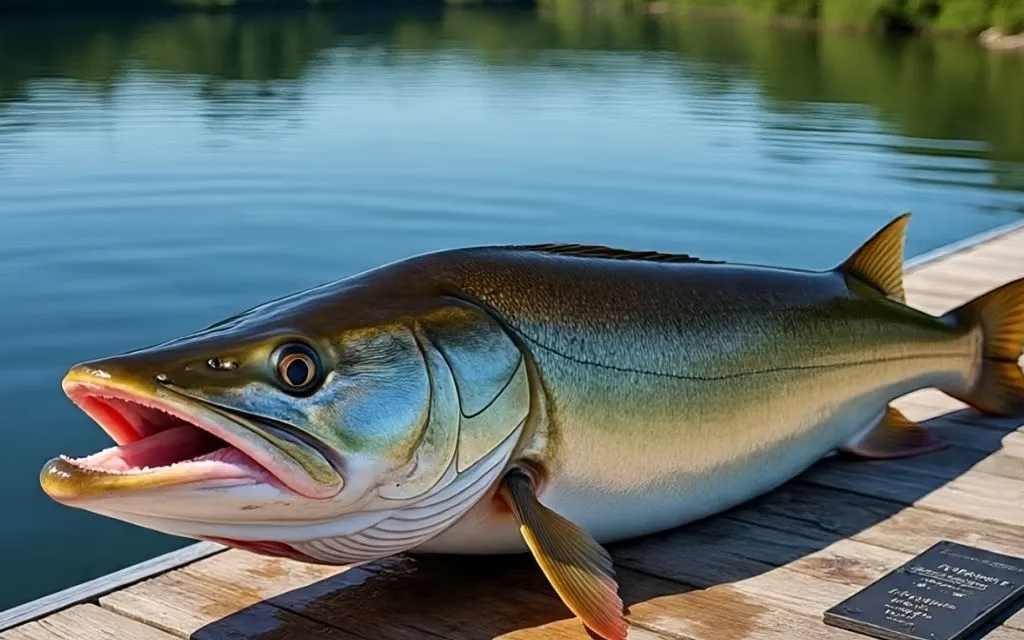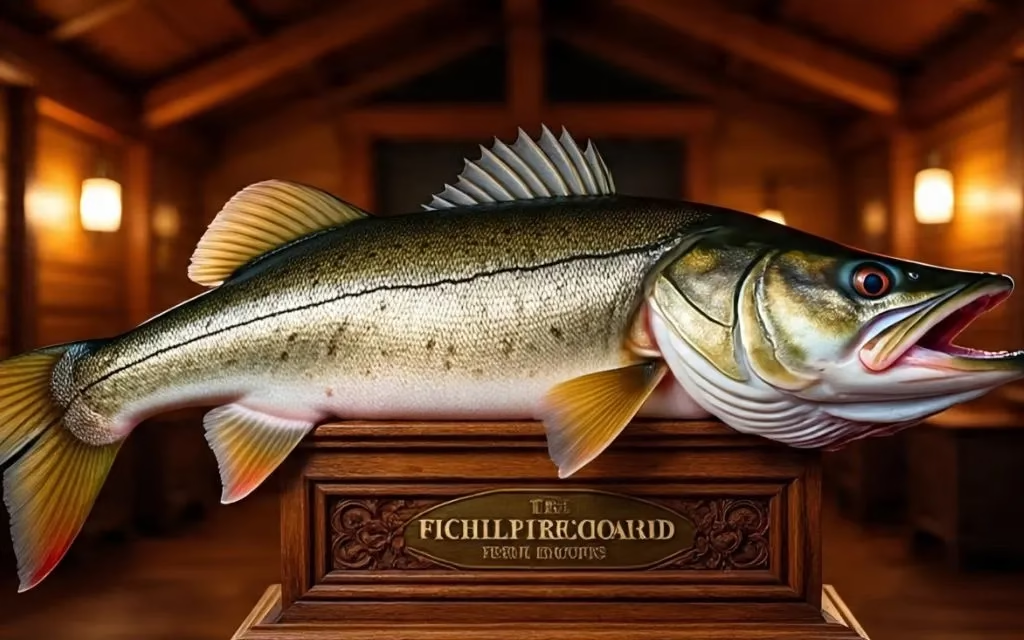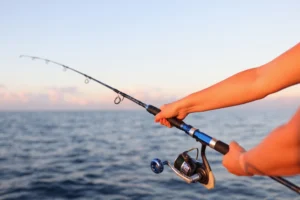World Record Muskie,One of the most interesting fish that have set records is the muskellunge, or muskie. People who fish all over North America want to catch the biggest muskie in the world. You need to be skilled, patient, and lucky. But it’s not easy to figure out who really holds the record. Musky fans have fought, shared old pictures, and disagreed about the history of this record.Some species have world records that are easy to find with today’s tools, but muskies don’t. There are different rules for each group that keeps track of records.
Why So Much Controversy?
People are very confused about the world record muskie for two main reasons:
A lot of governing bodies make their own rules. The International Game Fish Association (IGFA) and the Freshwater Fishing Hall of Fame are two examples. One person might know something about a fish that another person doesn’t.
Historical Records: A lot of the first claims were made in the 1940s and 1950s, which is a long time before we check things as carefully as we do now. Back then, there weren’t as many rules, and photos or sworn statements were often the only proof.
The Legendary World Record Muskie Contenders
Many muskies have tried to win the title over the years. Let’s talk about the well-known people who made this story so interesting. Some of these records have lasted, even though not everyone agreed on them. After looking at them more closely, some were thrown away.These famous muskies started a whole culture of trophy hunting in many ways. They made thousands of fishermen spend hours and hours trying to catch a fish that was bigger than life.
Cal Johnson – The IGFA Weight Record
The IGFA gives the crown to Cal Johnson because Spray’s fish didn’t count. Johnson caught a muskie that weighed 67 pounds and 8 ounces in Lac Courte Oreilles, Wisconsin, in July 1949. Johnson’s fish was a little smaller than the others, but it still met IGFA standards, so it is now the official IGFA weight record muskie.

Arthur Lawton – The Disputed Giant
Arthur Lawton sent a muskie to Field & Stream in 1957. It was 64 and a half inches long and weighed 69 pounds and 15 ounces. A lot of people thought this was the biggest muskie ever caught for a long time. However, investigations in 1992 showed that Lawton’s photos and measurements weren’t always right. It looked like a smaller fish that had been sent in before, and size comparisons showed that the fish wasn’t as big as it was said to be. So, Lawton’s muskie is not recognized by either the IGFA or the Hall of Fame.
Modern Records: The Length Category
Records based on length are becoming more common, especially for catch-and-release, because they are better for the environment. Weight has always been the norm.The IGFA keeps track of the All-Tackle Length Record, which is the distance from the tip of the nose to the fork of the tail. The IGFA has said that this catch is the longest catch-and-release catch ever. Derek Balmas was a tough opponent before Weston. He caught a 53-inch muskie in the St. Lawrence River in November 2022.Many anglers think that big muskie waters like Mille Lacs Lake in Minnesota or the St. Lawrence River could be home to the next record for weight or length. These records back that up.
ould the Record Be Broken Soon?
Definitely, yes. Musky fishermen now have tools that people in the past could never have imagined, like better marine electronics, sonar technology, and big natural swimbaits. A lot of experts think that the next world record muskie will weigh more than 70 pounds and come from Minnesota, Ontario, or other places where trophy muskies are found.Recent electrofishing surveys have found muskies that are longer than 60 inches, which is too big to weigh right away. These big fish show that there are muskies that are bigger than any other fish. They just need to be at the right time to bite.
What Makes a Muskie So Special?
Muskellunge are the best hunters because they are big, fast, and hit hard.They are from North America and do well in big lakes and rivers in the Midwest, Canada, and the Northeast. If the conditions are right, they can grow to be huge and live for 15 to 20 years.The muskie is known as the “fish of 10,000 casts” because it takes a lot of work to catch.The world record muskie is the most famous fish in the world. It means more than just luck; it means skill, hard work, and the excitement of going after a real-life legend.
Final Thoughts
The story of the world record muskie is a great mix of real life, myths, and a love of fishing. The search for the biggest muskie is far from over, from Louie Spray’s famous giant to Art Weston’s modern record for the biggest one.Thanks to modern technology and the rise of catch-and-release ethics, the next official record might be just around the corner. This could finally settle the disagreement.Musky fishermen all over the world will keep casting big baits, looking at their sonar screens, and dreaming of the day they make history in the sport until then.




